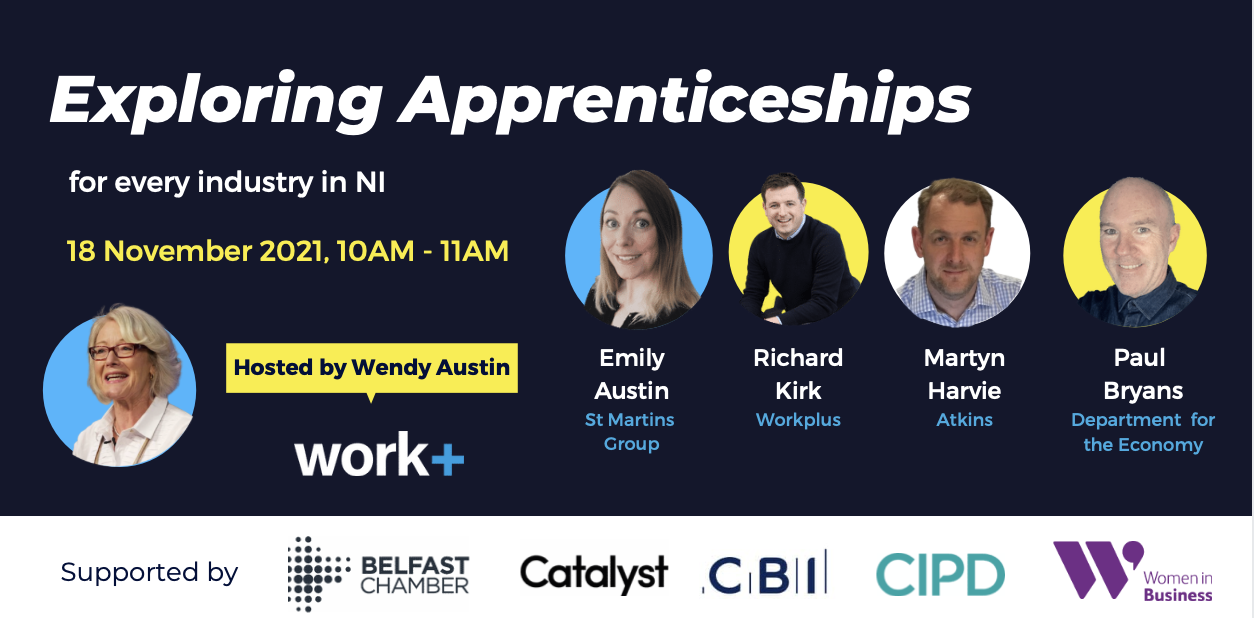‘Start with Why’ is the title of Simon Sinek’s bestselling book as well as the basis of his hugely successful Ted Talk – one of the most popular TED talks of all time (at almost 57m views!)
Sinek encourages us to prioritise the ‘Why‘ before we embark on the ‘how‘ and ‘what‘. He says every person/organisation knows what they do, some know how they do it but few understand the why, that is, the purpose behind how and what.
Such an approach – asking the ‘why’ – would certainly make of interesting discussion as we consider skills and education.
There has been profile given to skills recently, and rightly so.
Economic recovery has been strong, order books are filling (– or full!) but there’s a struggle to get the people.
It’s only natural that highlighting the skills shortages leads on to conversations about talent pipelines – and therein lies some fascinating research and discussion.
Right now, many companies need both ‘quick fixes’ and well as vision and preparedness for the future.
At Workplus, as we prepare for an upcoming Exploring Apprenticeships webinar as well as our 2022 campaign, it has led to many conversations with employers about new talent, what’s possible and, more fundamentally, asking why.
Many employers are looking at entry–level talent options – graduates, interns, placement students and apprentices – and wondering what’s best and are now asking why about how they’ve traditionally approached recruitment.
While I’m certain a ‘one size fits all’ approach isn’t the answer, there are some important aspects of apprenticeships worth considering, particularly as employers weigh up the benefits against the costs and commitment.
A growing awareness of the benefits
At Workplus, we work with employers in various sectors across Northern Ireland, from SMEs to large multi–nationals. Many of them operate a hybrid approach, recruiting both graduates and apprentices, as well as taking on placement students and interns.
There’s a growing awakening to the benefits of apprenticeships, with recent research by the St Martin’s Group research supporting on–the–ground experiences. The research showed that companies recoup the costs of hiring an apprentice, based on productivity, but there is much more to consider than simply the bottom line.
Perceived barriers becoming opportunities
Some employers tell me they’re hesitant about hiring apprentices – the commitment to mentoring and employment, the ‘starting from scratch’, the additional efforts required from existing staff.
I’m working with employers who have been in that exact position and are now able to see that those perceived barriers were, in fact, real opportunities.
The ‘starting from scratch’ has been refreshing, with apprentices coming in fresh, enthusiastic, ready to learn with no preconceptions or bad habits, and ready and willing to be moulded to fit the company.
The mentoring requirement, rather than being a burden, has been a very positive experience for existing staff, aiding their own professional development and enriching the company culture.
The company commitment has, in fact, been a positive culture–changer, which in turn, reaps loyalty from the apprentices – evidenced in retention levels.
Real–time learning and real–time relevance
For the apprentice, they earn and learn. They get a job and continue their education. That’s good news for them. But it’s also hugely beneficial for the employer.
Many industries move so fast – much more quickly than full–time education.
In some cases, what is taught in first year of university is outdated and irrelevant. That’s hard for the graduate – as well as the employer who is paying a graduate salary!
As we think about the 10x economy, it also forces us to think about how young people are learning. The hybrid approach which an apprenticeship offers – the mix of learning on the job, continuing education and having on–the–ground expert mentoring is proving a successful approach for both employers and apprentice as it’s ensuring relevance and productivity.
It’s for the now… and then
Apprenticeships are deeply relevant in addressing the existing skills gap and as we look to the future. I’ve blogged before about my desire to see the phrase ‘bright young graduates’ dropped from major jobs or investment announcements.
Why? Because we need to make our language more inclusive to reflect the growing band of smart, talented and enthusiastic aspiring apprentices whose enthusiasm and work ethic is matched by a deep desire to learn.
Starting with the Why? with talent
As we think about talent and pipelines, let’s start with ‘Why’, because in doing so, it is the catalyst for discovering richness of purpose as well as realising genuine transformation in our approach to skills and education.
Workplus is hosting an Exploring Apprenticeships webinar for employers on Thursday 18th November, 10am – 11am. Register here.

